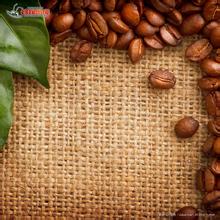How many coffee farms are there in Kenya?-what is the altitude at which coffee is grown
How many coffee plantations are there in Kenya? -What is the elevation at which coffee is grown?
Kenya DORMANS was founded in 1950 and is one of Kenya's largest coffee producers. DORMANS offers Kenya's finest Specialty Coffee, 100% single-origin Arabica beans and true gourmet coffee. Kenya coffee enjoys a high reputation internationally and is known as the king of African coffee due to its excellent quality. Berman Manor uses coffee beans from designated small plantations in Nairobi Mountains, pure plateau climate, natural organic growth, all hand-picked and naturally dried, and strictly classified according to solar terms and mountain heights. Berman Estate's appraisers taste about 1500 cups of coffee a week, and only the best beans are selected for blending and roasting to craft premium coffee products for consumers to enjoy
Kenya pays more attention to the cultivation of coffee varieties. SL28, developed by a professional team, is a direct branch of bourbon coffee beans and is the best representative of Kenya coffee quality and flavor.
Coffee growing areas of Kenya
Kenya's coffee production is mainly concentrated in Mount Kenya (Mt. Kenya) represents the plateau area. Tropical climate, acidic red volcanic soil for coffee provides a natural suitable growth environment. The main producing areas such as central Neri (Nyeri), Ruiru (Ruiru) and so on.
Kenya coffee varieties
Bourbon Bourbon was first brought to Kenya for cultivation. In the 1950s, Scott Laboratory, an agricultural research institution at that time, made unremitting efforts to select two excellent hybrids SL-28 and SL-34, overturning the long-standing bias that artificial breeding varieties were not superior to natural varieties. SL-28 and SL-34 help Kenya coffee to form its own unique flavor characteristics and establish a perfect reputation in the coffee industry.

Important Notice :
前街咖啡 FrontStreet Coffee has moved to new addredd:
FrontStreet Coffee Address: 315,Donghua East Road,GuangZhou
Tel:020 38364473
- Prev

Flavor description of coffee beans from the sidamo charcheso region
Flavor description: lemon and citrus, bright crisp acidity, lemon, citrus, white grape juice, blackcurrant, Earl Grey tail. Sun-dried Sidamo: beans smaller than Longberry, greenish yellow, in Sidamo's sun drying yard, coffee is placed in hemp net stands, workers take turns exposing to sunlight.
- Next

Description of the planting Environment of Flint Manor in Panama A brief introduction to the Price of Coffee beans
The price of coffee beans is located in the high mountains of Sao Paulo near the Minas border, with an altitude of 1200 meters to 1400 meters, with abundant annual rainfall of more than 1800 meters, but not torrential rain, with an average annual temperature of only 19 ℃. Therefore, the growth of bean fruit is slightly slow, but the texture density is enough, although the yield is less, but the aroma and flavor is not ordinary Brazilian plateau beans can look at its back.
Related
- Does Rose Summer choose Blue, Green or Red? Detailed explanation of Rose Summer Coffee plots and Classification in Panamanian Jade Manor
- What is the difference between the origin, producing area, processing plant, cooperative and manor of coffee beans?
- How fine does the espresso powder fit? how to grind the espresso?
- Sca coffee roasting degree color card coffee roasting degree 8 roasting color values what do you mean?
- The practice of lattes: how to make lattes at home
- Introduction to Indonesian Fine Coffee beans-- Java Coffee producing area of Indonesian Arabica Coffee
- How much will the flavor of light and medium roasted rose summer be expressed? What baking level is rose summer suitable for?
- Introduction to the characteristics of washing, sun-drying or wet-planing coffee commonly used in Mantenin, Indonesia
- Price characteristics of Arabica Coffee Bean Starbucks introduction to Manning Coffee Bean Taste producing area Variety Manor
- What is the authentic Yega flavor? What are the flavor characteristics of the really excellent Yejasuffi coffee beans?

